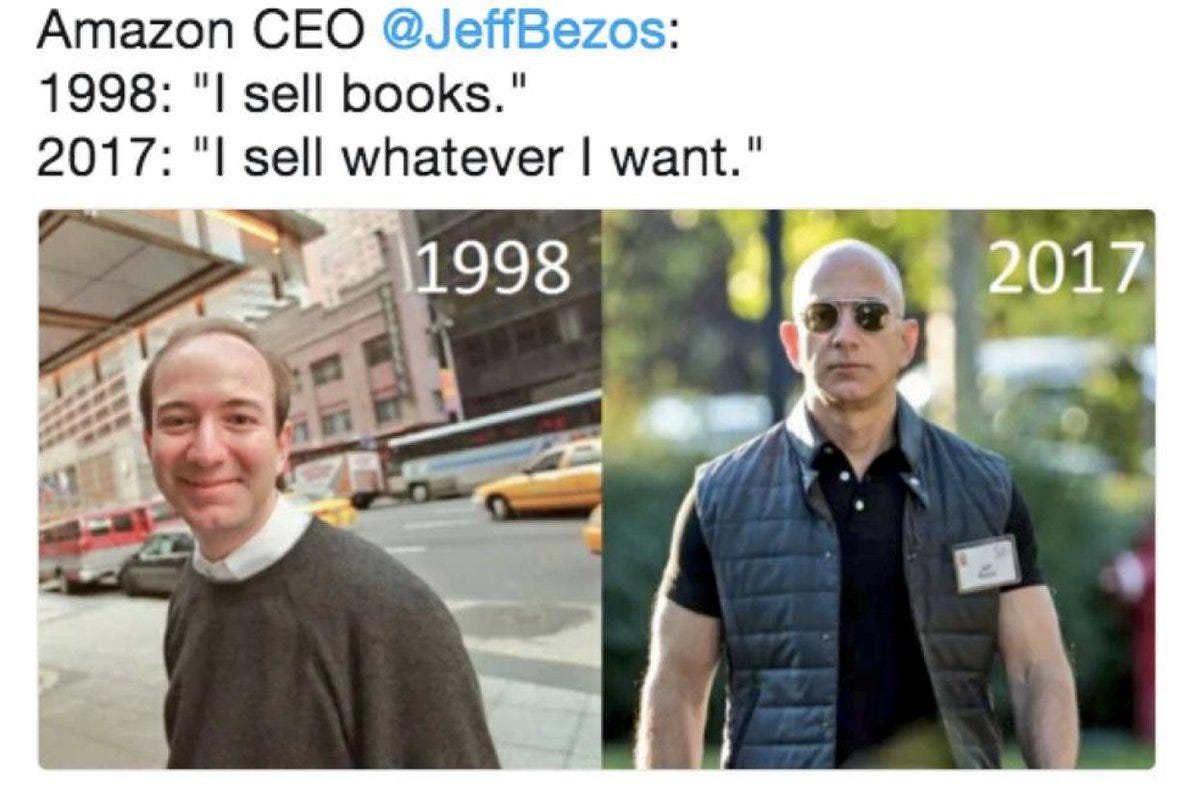In Defence of Broscience
Or why you should have skin in the game when it comes to health
A trailer for Tucker Carlson's new documentary series was ridiculed recently, partly because any depiction of muscular men is perceived as gay (which is ironic for Carlson as a reactionary), but mainly for the bizarre image of a man 'tanning' his testicles.
The premise of the documentary is that rapidly declining testosterone levels are causing individual and societal problems and that one way to halt the decline is to expose your balls to red light. It sounds like a wacky suggestion, but if you ever read magazines like Men's Health, you'll know these kinds of ideas are quite common.
Thankfully, Stuart Ritchie has done the yeoman's work and read up on whether such practices have any scientific basis. He is sceptical, but concludes that "the basic underlying idea—that raising vitamin D, via sunlight to the skin, might lead to higher testosterone—isn’t completely crazy" but that there is no evidence to show that "shining light on the testicles in particular would be especially useful."
I highly recommend you sign up to Ritchie's Substack and also linked to his excellent piece on Johann Hari last week. However, I couldn’t help but notice that he is almost the archetype of what has become known as soy face, the wide-eyed, open-mouthed expression of wonder that has come to be associated with neotenous men in the modern era … which is, of course, fine. If he is happy, healthy, and productive (and he is very productive), then it doesn't matter what he looks like or how much testosterone he has.
And how would we ever know? Very few people ever get the bloodwork done to find out how much testosterone they have circulating in their bodies. All we have are subjective feelings of wellness, changing from day to day, season to season. Maybe you have a vague memory of having felt more or less energetic in the past, but the reality is that these feelings are transient and difficult to compare.1
One way to work out what testosterone does is to take steroids (ie artificial testosterone) and see what happens. To this end, I’ve seen a performance art piece about a trans man who both took testosterone and was positively changed both physically and mentally. I’ve also read Matthew Sperling’s novel, Astroturf, about a web designer who gets into weightlifting, starts injecting steroids, and doesn’t suffer from the usual side-effects like violence, acne, and impotence:
On the fourth day, he realised that his mood had changed. When his alarm went off in the morning he felt alert and clear-headed, and didn't press snooze even once. [… ] As he walked to work, his mind felt lucid and free of anxiety. He wanted to see people, to experience the city, and he felt in harmony with its rhythms.
Finally, I’ve seen before and after photos of Jeff Bezos, who is widely rumoured to be on TRT:
What I haven’t done is take any testosterone myself. Nevertheless, I am conscious that this hormone will affect my wellbeing and therefore have ‘skin in the game’ when it comes to decisions about things I consume that can raise or lower T … which brings me on to the topic of broscience.
Broscience, at its best, is when normal people read scientific research then apply the findings in their life to see how they feel. Health is a complex phenomenon and there are so many ways that people can feel good or bad—whether it's their mental health, physical health, hormones, skin, gut, breath—so a series of subtle changes to the diet or activity can be transformative.
Broscience is an attitude of empowerment and skepticism. Empowerment because you are not reliant on the medical establishment and scepticism because you realise that there is no one answer to health, just what is appropriate for your body right now.
Now, don’t get me wrong: I love the NHS and respect the advice of my GP. If I were ill, I would go straight to them. Nonetheless, the NHS is better described as the National Sickness Service—there to help people when they are unwell rather than optimising long-term health. There is good, solid information on the NHS website about diet and exercise, but it is the kind of advice you give to someone you want to work 40 hours a week in an office, not the kind of rugged, ready-for-anything vitality that we might want to experience.
There was a popular meme a while ago that showed what those who are in charge of health policy look like. The implication is that these people should not be giving any advice before they have sorted out their own health problems. As the bros say: post physique! I interpret ‘post physique’ as being about having good outcomes from the practices you advocate rather than judging people on what they look like. Is it working for you? If not, why not.
Broscience has a bad reputation for two reasons: the broiness and the lack of science. The bro part of it leads to implications that it is a bunch of meatheads who just inject steroids. The lack of science part is that they read one thing in a research paper and then look for confirmation rather than remaining sceptical.
The bros lack the tools to know what it going on in their bodies and so end up relying on how they feel from day to day. The problem with this is that it can lead to neuroticism, a constant anxiety about whether you're doing the right thing: the people who expose their balls to red light also fear cooking them.
For this reason, my favourite kind of broscience is that which embraces the precautionary principle and the lindy effect. In a world full of chemicals that are known to be estrogenic and disrupt your hormonal system, we need to first focus on avoiding the bad stuff rather than embracing the wacky.
It will be interesting to see if blood testing becomes more common over the next few years, despite the Theranos fiasco.








People willing to do self-experimentation is good, but most “bro science” is people who have zero ability to interpret scientific papers latching on to some extremely weak piece of research. A good example is the concept of “soy face” - you’d need to be eating kilos of soya a day for it to have any impact on your sex hormone levels. It’s a junk idea. If you look at a picture of a man opening his mouth in a photo (which I sometimes do because I can’t smile convincingly on camera) and think “soy face” then it’s a flaw in your model of the world - it’s not helping you understand reality at all.